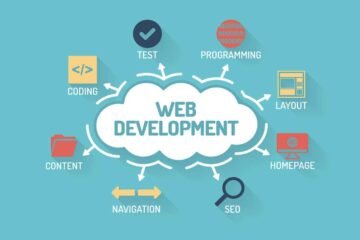Master Java with context — full stack, marketing, design, AI, and real-world training to become job-ready with Cyberinfomines.
Walk into any engineering college today and ask students what programming language they’re learning. The most common answer? Java. For decades, Java has been considered the holy grail for aspiring developers. But in 2025, is simply “learning Java” enough to get a job, build something meaningful, or even keep pace with the evolving tech landscape?
Let’s be honest — learning Java in isolation won’t cut it anymore. You need context, application, ecosystem understanding, and business awareness. And more importantly, you need transformation — not just instruction. That’s where Cyberinfomines comes in.
Let’s unpack why Java isn’t the final destination — and how you can future-proof your learning journey with the right approach.
1. Java Is Just One Piece of a Much Bigger Puzzle
Knowing Java is like knowing how to use a hammer — it’s a tool. But building a house requires architecture, plumbing, wiring, and design. In the same way, modern development needs you to understand how Java fits into the broader ecosystem.
Today’s applications require:
Front-end frameworks (React, Angular)
Back-end orchestration (Spring Boot, Node.js)
Cloud environments (AWS, GCP, Azure)
Databases (MongoDB, PostgreSQL, MySQL)
APIs and microservices
CI/CD pipelines and DevOps workflows
Without these, Java becomes a limiting skill rather than an empowering one. That’s why Cyberinfomines trains students through Full Stack Developer programs — not just “Java.”
2. The Industry Demands Job-Ready, Not Just Trained
It’s not about whether you’ve heard of concepts like REST APIs or Docker; it’s about whether you’ve built something using them. Recruiters are no longer impressed with your familiarity — they want your functionality.
That’s why we emphasize:
Project Based Training that mimics real workplace challenges
Continuous integration tools, Git/GitHub workflows
Working on Existing Website & Mobile Applications to understand deployment, bugs, and testing cycles
Exposure to UI/UX, backend architecture, and server handling
This applied learning means you walk into interviews with a portfolio, not just a certificate.
3. Java Developers Now Need Cross-Disciplinary Skills
A good developer today must also know a bit about:
Product thinking
APIs and webhooks
Application security
SEO principles
User experience
Through Web Application Designing and Website Designing modules, we help learners merge technical skills with business and user priorities.
4. You Can’t Ignore Digital Marketing Anymore
Wait — what does digital marketing have to do with programming?
Everything.
Even the best application will die in silence if it’s not marketed correctly. Developers today are expected to collaborate with marketers, understand basic analytics, and build platforms that support growth strategies.
That’s why we offer:
Search Engine Optimization (SEO) integration strategies
How email workflows connect through Email Marketing APIs
Site analytics with Web Analytics & Data Analytics
Building mobile-first experiences for Mobile Marketing campaigns
So no, Java can’t do it alone. You need a broader lens to see the big picture.
5. AI & Automation Are Reshaping Everything
Please visit our website to know more:-https://cyberinfomines.com/blog-details/why-learning-java-won%E2%80%99t-cut-it-anymore-and-what-to-do-instead





